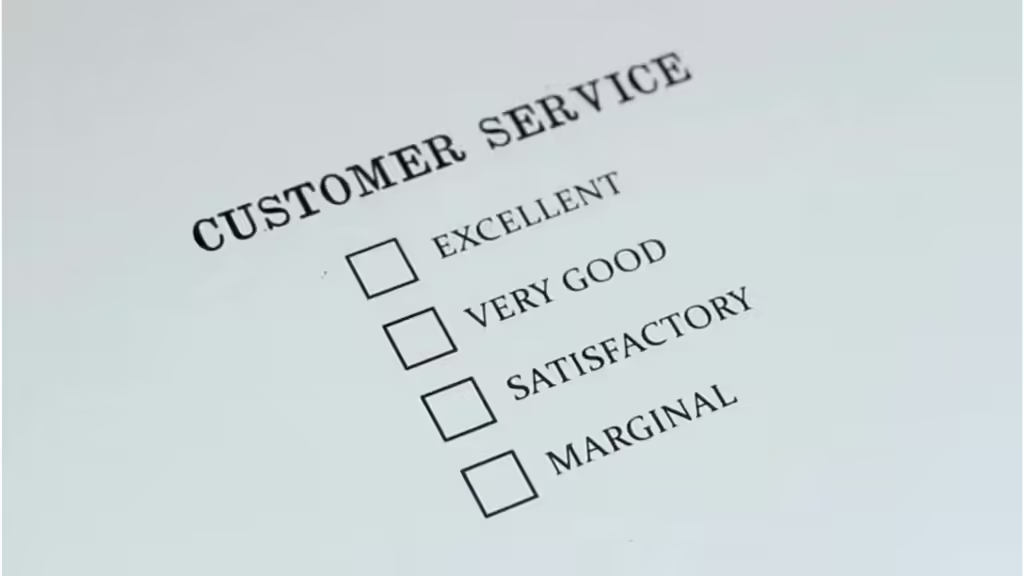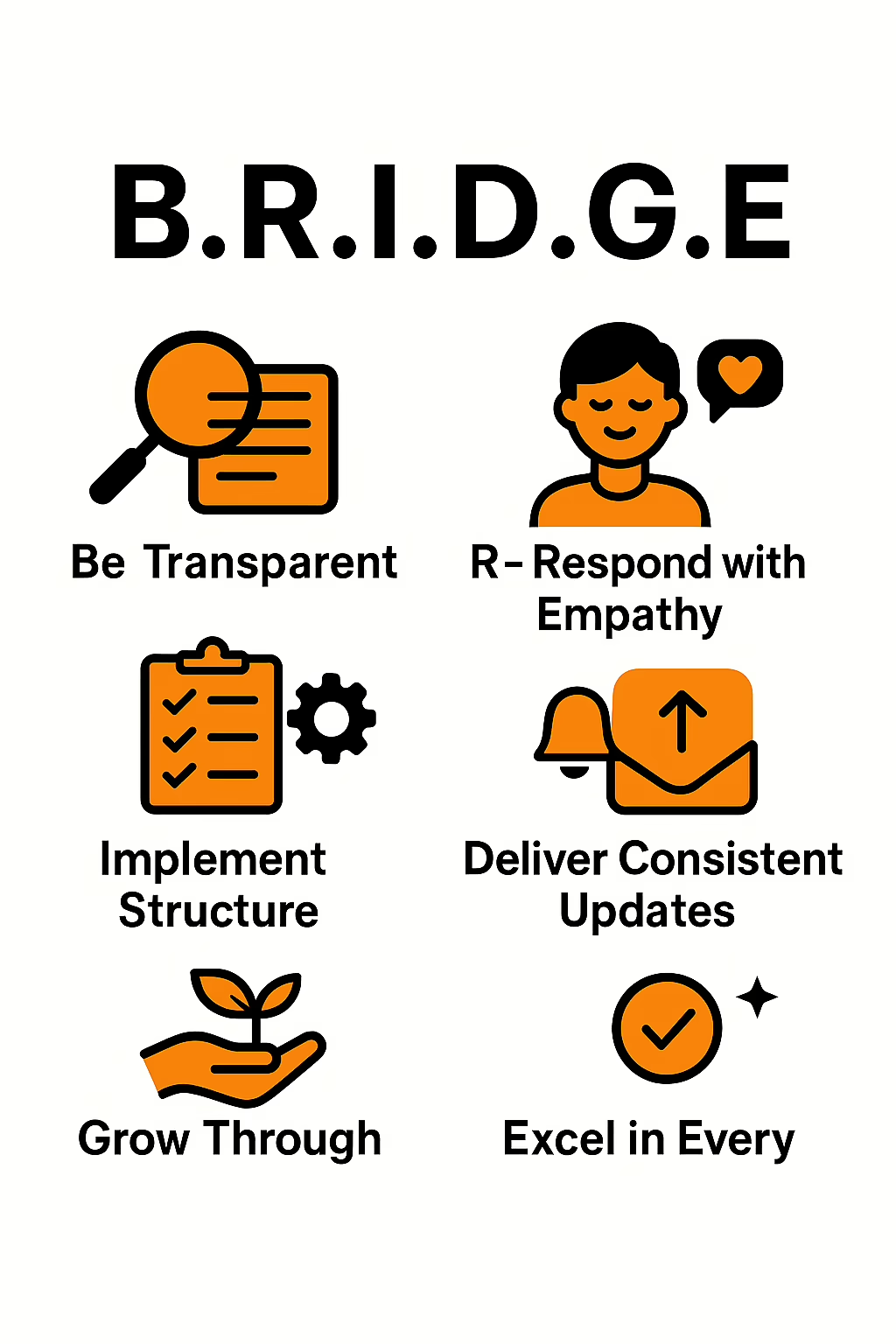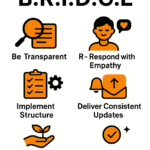According to an article published in the Harvard Business Review, the history and evolution of the economy can be summed up into four phases:
- The agrarian phase/economy
- The industrial economy
- The service economy
- The experience economy
Our current dispensation is in the experience economy, the fourth element in the progression of value after service. Essentially, today’s consumer prioritizes experience as an economic offering. Therefore, the businesses that will thrive in this dispensation are those that stage exceptional experiences for their clientele.
All law firms are businesses regardless of the reason for starting a legal practice. While technical legal skills cannot be underrated, customer satisfaction and client retention are equally important in running a successful law firm. Therefore, this customer service week, we ponder the question of customer service and the experience economy in Kenya’s legal arena.
We spoke to MMC Asafo, a top-tier law firm, to gain insights into the customer experience as an offering in Kenya’s legal space. Below is an overview of their take on client experience and the customer service pillars that have kept them on top of the game for over two decades.
Question: What do clients value most in a law firm?
Answer: Clients value Consistency and responsiveness in a law firm.
They expect their legal issues to be handled professionally, with clear communication, and timely delivery of results. Clients also value a personalized approach—where their needs are understood and addressed on an individual basis, particularly in areas such as real estate, corporate commercial law, and dispute resolution, which are MMC Asafo’s core strengths.
Question: What are their expectations with the person who is the first point of contact?
Answer: The first point of contact sets the tone for the client relationship. Clients expect professionalism, empathy, and efficiency when interacting with the Partners, Associates and our customer service representatives both online and on the ground. Clients want someone who is knowledgeable of the systems and processes and can steer them in the right direction in the case of Customer Service representatives and a knowledgeable individual who can effectively understand and respond to their inquiries, and make them feel valued. For a firm like MMC Asafo, which handles high-stakes commercial and real estate matters, the first impression must instill confidence in the firm’s expertise and ability to handle complex issues.
Question: As a law firm with a global outlook, are there differences in customer service when handling local vs. foreign clients?
Answer: Yes, there are differences. Local clients may be more familiar with Kenyan legal systems and business culture, while foreign clients often require additional guidance and reassurance regarding regulatory compliance, legal nuances, and the Kenyan market landscape. For foreign clients, a global outlook combined with local expertise is crucial, and customer service needs to include cultural sensitivity, seamless communication across time zones, and the ability to translate complex legal frameworks into understandable advice.
Question: Are there some global trends you’d recommend more Kenyan law firms adopt in customer service?
Answer:
- Client-Centric Service Models: Focusing on personalized, client-first strategies that prioritize the client’s experience and satisfaction.
- Diversity and Inclusion in Customer Service: Firms should train their customer service teams to engage clients with a deep understanding of different cultures and backgrounds. Our customer service experience reflects the firm’s diverse client base and international reach.
Question: Is there a difference in customer service requirements for B2B clients, like those seeking commercial law services, and B2C ones, like those seeking mediation services?
Answer: Yes, there are notable differences.
- B2B Clients: These clients, such as those seeking commercial or corporate law services, often require in-depth, ongoing strategic advisory services. The focus is on professionalism, long-term relationship management, and technical expertise. They expect prompt, business-focused communication and solutions that align with their organizational goals.
- B2C Clients: Individuals seeking services like mediation or conveyancing often prioritize empathy, transparency, and guidance through the legal process. Their needs are more personal and emotional, so customer service must be more supportive and accessible, ensuring they feel understood and informed throughout the process.
Question: If yes, can you highlight some of the differences?
Answer
- B2B Customer Service typically requires customized reporting, regular updates on legal developments, and client-specific solutions tied to business objectives.
- B2C Customer Service often involves more hand-holding, patience, and clear explanations of legal jargon, as these clients may not be familiar with the complexities of the legal system.
Question: Does your law firm have a customer service budget, and should law firms intentionally set funds and other resources aside for customer service activities and personnel?
Answer: Yes, MMC Asafo has allocated resources to ensure quality customer service is delivered consistently. The budget is usually included in specific ways under all departments depending on their needs and feedback from their clients. This is usually set during the annual strategy meeting and under the section that focuses on the client’s perspective.
Question: Besides a budget, does your law firm have a customer service strategy?
Answer: Yes, MMC Asafo has a defined customer service strategy and policy that is continuously revised to meet client ever-changing needs and landscape: the strategy is closely tied to the firm’s overall business goals. One crucial element of this strategy is proactive client engagement, where we anticipate client needs and provide solutions before they even ask. Regular client feedback and relationship management form the backbone of this strategy.
Question: How does your law firm measure customer service success? Which primary metrics would you recommend law firms consider using to track customer service success?
Answer: We measure customer service success through:
- Client satisfaction surveys: These offer insight into how well we are meeting client expectations.
- Client retention rates: A high retention rate reflects strong client satisfaction and effective service delivery.
- Response time metrics: Tracking how quickly we respond to client inquiries is crucial to maintaining satisfaction.
- Client feedback on specific interactions: We gather direct feedback on how clients feel about their communication with our team.
Question: Your firm is over 2 decades old Based on your journey as a firm, do the customer service requirements change as the firm progresses through the business life cycle?
Answer: Yes, as the firm has grown, client expectations have evolved. Early on, the focus was on establishing trust and reliability with a smaller client base. As we expanded, clients began to expect more specialized, high-touch service, especially in niche practice areas like real estate and banking. Today, with a larger and more diverse clientele, customer service requirements include quick response times, digital communication, and the ability to offer tailored services and value addition through training, cross- selling opportunities for both local and international clients through organizing networking events .
Question: What customer service constants/golden rules have helped make your brand what it is today?
Answer: Some constants that have contributed to MMC Asafo’s success include:
- Client-first mentality: Always prioritize client needs and keep them informed.
- Consistency in communication: Regular, clear, and honest communication with clients to avoid surprises.
- Responsiveness: Quick response to client inquiries, ensuring they feel valued.
- Personalized service: We tailor our services to each client’s unique situation, whether they are a business or an individual.
- Building long-term relationships: Focus on nurturing client relationships beyond individual cases, ensuring trust and loyalty over time.
A big thank you to MMC Asafo for giving us a sneak peek of their “secret sauce” regarding customer service. We hope these nuggets of wisdom will help you conquer the experience economy and thrive as a legal entrepreneur.
For more actionable tips on customer service for law firms, listen to Jessica Mwenje, Head of Real Estate at MMC Asafo, as she unpacks customer service in real estate law (one of MMC Asafo’s primary practice areas) here.












